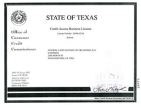How to Start an Emergency Fund
Unexpected expenses like car repairs and medical bills always come up. In fact, you can plan for emergency expenses simply by the fact that you can count on them happening. We’ll show you how to start an emergency fund to protect yourself from going into debt and paying high interest rates. It’s really not as hard as you think:
- Create a Budget – If you’re not already tracking how much money comes in and goes out each month, now is the time to start. Include all household expenses – rent or mortgage, utilities, car payments, insurance, etc. Look at your bank statements to see how much you spend on groceries, eating out, and other things. Add a line item for your emergency fund, and set aside as much as you can. It may be $10 or $100 a month, but either way, it’s going to add up!
- What is Your Goal? – A good rule of thumb is to have three to six months of basic living expenses set aside as a cushion. You never know when a sudden job change or layoff might happen, and it’s a lot less stressful if you have money in the bank. Set a goal with a specific dollar amount and deadline to get there.
- Make a Roadmap – Break your goal down into small, achievable chunks. For example, maybe you want to put $250 a month aside for the next six months for your emergency fund while you pay down debt at the same time. Then, when you have more money available, you can update your roadmap to plan for setting aside $750 a month until you reach your target. You might want to pick up extra work to earn money for the fund.
- Accessible at a Moment’s Notice – Keep your emergency savings in an account that you can access quickly without paying a penalty, like a checking or savings account. If you choose to invest in a mutual fund, money market fund, or certificate of deposit, be sure you understand how to access those funds when you need them.
- Stick With It – Have the will power to keep your emergency fund separate from your other money, and don’t dip into it unless it’s an emergency. It’s easier to stay on track if you make sure your goals are reasonable and that you’ve budgeted well, so you don’t want to borrow from it. Setting up automatic transfers is a simple way to make sure you stick with the plan.
If You Need a Loan
If you find yourself stuck and your emergency funds just won’t cut it, CashMax is here. Our payday and title loans are just what you need in difficult financial situations. Safe, quick, and easy!
